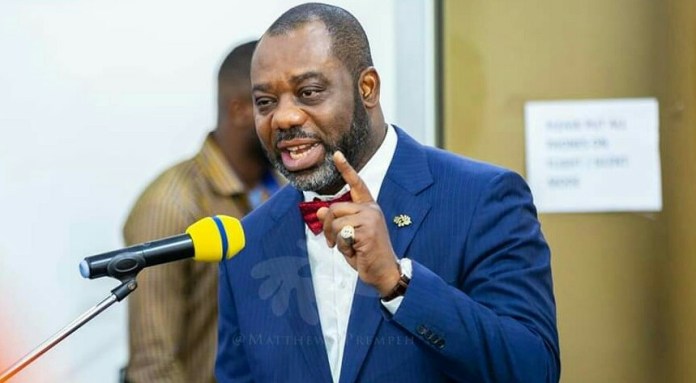Dr. Mahamudu Bawumia’s running mate in the 2024 general elections, Dr. Matthew Opoku Prempeh, also known as NAPO, has made his first public utterance after the party’s electoral defeat in the just-ended elections.
He contends the NPP’s abysmal performance at the polls was due to internal party challenges which could not be resolved by leadership.
The New Patriotic Party (NPP), which Dr. Bawumia led in the 2024 polls, was seeking its third term after being in government for two terms, but failed woefully after being voted out for what many believe was due to the poor performance of the government.
Dr. Bawumia was defeated by former President John Dramani Mahama of the National Democratic Congress (NDC) who came in for his second term after being voted out after his first term.
In an interview on Accra-based Channel One TV Monday, January 06, 2025, NAPO disagreed with the claim that the party’s loss was due to the economic challenges the country faced under the NPP.
According to him, the unprecedented defeat of the party stems from unresolved internal conflicts and organisational flaws within the NPP leading to a long-standing governance issues within the party causing their defeat.
He indicated that the said issues within the NPP have been recurring in the party, citing past experiences where the NPP had to take lessons from previous mistakes.
“MPs were begging people to go and vote, but they said they were not going to vote. That is not about economic mismanagement, it is about a deep-seated problem the party hasn’t addressed.
“You can’t imagine yourself to be a master of everything at every time. There are certain events that you may not be able to do anything about and it will hit you. It is not just the NPP that has suffered that.
“In 1992, we had zero representation in parliament. The country and the party learned. Because in the said year, the presidential and parliamentary elections when the party lost, they wrote a stolen verdict and they decided that they were going to boycott parliament.
“It was a party decision. Subsequently, that same party met and said they shouldn’t have boycotted parliament. They said it was better for us to go with the few seats we won than to boycott. So, the party changed, and the country changed,” he added.













